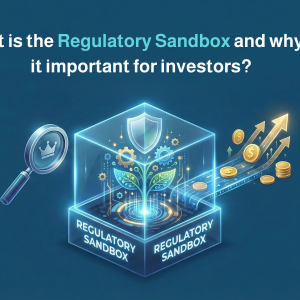Human civilization and gold have been intertwined for millennia. Gold raised and destroyed cities, bought armies and security. Divided populations into the haves and have-nots. While we like to think that today things are a little different but, gold still buys security as it did years ago. Security may look a little different in 2025 than it did 2000 years ago. Gold is seen as a safe haven asset for today’s economic stresses. Many people are asking, “Is gold a good investment for the future?”
Let’s look at the investment space in 2025. We see rising inflation, interest rate changes, and unpredictable markets. Investors, both seasoned and new, are looking for a way to protect their wealth, and for many, that leads them to gold. A physical asset that is widely trusted, globally recognised, and holds its value. That doesn’t mean that gold is the only option for investors.
We will be taking a closer look at gold performance, especially during times of uncertainty, and how trends are shaping its value in 2025 and the years to come. We will compare gold to other popular investments such as stocks, real estate, and cryptocurrency. We will look at the risks involved in investing in gold and the different methods in which one could invest in gold.
More topics can be read on the Gamma blog
Why Gold Often Outperforms During Inflation and Uncertainty
So, is gold a good investment for the future? Well, we know that gold is the ultimate panic buy for investors, but is that a habit or tradition? Or, is that based on gold’s performance during times of economic hardships? Historically, gold tends to hold its value or, at times, increase in value while currencies’ value decreases; this is why it is seen as a hedge against inflation.
The value of gold is not determined by a company’s profits, interest rates, or dividends. It is not tied to a single currency or country; it is, for that reason, seen as a universal store of value. Gold becomes more attractive when people begin to worry about inflation, recessions, or geopolitical tension, and as the demand for gold rises, so does the price.
We can use the 2008 financial crisis to prove this point. Global stock fell sharply, and gold prices soared as investors were looking for safety. We saw the same again with the start of the COVID-19 pandemic; uncertainty led to a spike in gold prices, as the value of other assets declined.
Today, as inflation remains high in many parts of the world and interest rates shift, gold continues to attract investors. For those investors asking if gold is a good investment for the future, we can point to its historical strength during periods of instability to make a strong case.
While gold looks great and remains a powerful draw, past performance doesn’t guarantee future value, especially as new investment opportunities arise.
Macro Trends Impacting Current Gold Prices and their Future
If we look ahead to the large-scale trends, we can see how they will likely affect gold’s performance. The Large-scale trends go beyond short-term news cycles and help shape whether gold remains a wise choice for investors looking after their future.
Central banks, especially in emerging markets, i.e., India, China, and the Middle East, have been increasing their gold reserves. The growing demand supports gold prices and shows long-term confidence in the asset.
The price of gold is in US dollars, so when the dollar weakens, gold becomes a little more affordable for buyers with differing currencies, and this boosts global demand. As does the continued uncertainty surrounding interest rate policies in major economies. The currency fluctuation will likely continue to impact gold markets in 2025 and the future.
We need to assess supply, with gold mining becoming more expensive an endeavor and the easy-to-access reserves tapped, limited new supply with a steadily increasing demand could support higher prices in the future. So, is gold a good investment for the future? That really all depends on how these trends transpire. For those keeping watch on the big picture, gold continues to hold value in a well-balanced portfolio.
How Gold Stacks Up Against Stocks, Crypto, and Real Estate
We should compare gold to other major asset classes to see whether it deserves a spot in your portfolio. Each asset has a different role, which is dependent on your goals, appetite for risk, and need for liquidity or income. We will have a quick side-by-side look at the comparison between gold, stocks, crypto, and real estate.
| Asset | Risk level | Income
Potential |
Liquidity | Volatility | Long-term
Growth |
Key
Advantage |
| Gold | Low to Medium | None | High | Modest | Modest | Stability during uncertainty |
| Stocks | Medium to High | Dividends
possible |
High | High | High | Strong Long-term returns |
| Real Estate | Medium | Rental income | Low to Medium | High | High | Tangible asset with income potential |
| Crypto | Very High | None or speculative | High | Very High | Unpredictable | High-risk, high-reward potential |
Gold doesn’t offer growth or generate income; it offers something that the others do not, and that is resilience. It is the slimmer of hope when all other markets stumble.
So, is gold a good investment for the future? It will never truly outperform other assets in your portfolio on its own, but it will play a pivotal role in protecting your portfolio during economic shocks or currency devaluation. When gold is paired with growth assets such as stocks or real estate, gold helps create balance. This is especially true for investors focused on long-term financial security.
If you are looking to use gold as an asset for diversification, we suggest using Gamma Assets to further diversify through fractional real estate opportunities to balance risk and reward.
The Downsides of Owning Gold: Volatility, No Income, and Costs
Gold is known for its stability, which is why it has been termed a “safe haven” asset. We should not forget the trade-offs it comes with; it is important to understand the limitations and the benefits.
As we saw in the table, gold does not generate an income, unlike stocks, which can pay dividends, or real estate, which can generate rental income. Gold’s value comes from the price movement alone, meaning that the returns are solely from purchase price versus selling price.
Then there is a volatility aspect, although seen as a “safe” option, prices could still swing dramatically due to global events, central bank decisions, or sudden changes in demand. Gold has seen sharp price hikes and falls year to year.
One should also consider the cost of buying physical gold; it becomes risky to have it lying around, so you would need to consider secure storage and insurance. The purchase price may also be above the premium, meaning you have bought it for more than it is worth. Selling your gold can also incur costs. Digit gold or ETFs can carry management fees or platform charges, which depend on where and how you invest.
A strength of gold is its liquidity, but timing is everything. Holding onto gold for long periods may have helped you weather uncertain periods, but if you bought gold during a peak when the price was high, and you decide to sell when the price is in a dip or low, you are likely to lose money on the transaction.
So, is gold a good investment for the future? Well, that all depends on your intentions. It definitely shouldn’t be your sole investment but should rather form part of a balanced portfolio, adding value and complementing your other assets. You need to be aware of the limitations of gold before investing.
Top Gold Investing Options: Physical, Digital, ETFs; What Fits You Best?
So, you have decided you would like to add gold to your portfolio, bravo! But which format interests you the most? Each method has its pros and cons; the choice needs to depend on your goals, budget, and comfort with technology.
Physical Gold
This is what you expect if someone says gold to you: it could be bars, jewelry, or coins, and you have direct ownership. This tangible asset can be stored in a safe or a deposit box. You fact that you need to consider storage and security would be the downside. You should also consider insurance and where you are purchasing from. Physical gold is best suited to long-term holders who would like physical control of their assets.
Digital Gold
Digital platforms allow investors to buy small amounts of gold online, which can either be stored in their vaults on the investors’ behalf or can be delivered. You get flexibility with this option, low minimum investments, and easy access through apps. The Gulf region and Saudi Arabia have several platforms that offer Sharia-compliant digital gold services.
Gold ETFs (Exchange-Traded Funds)
This route means never having to worry about getting your hands on the precious metal at all. You can buy and sell them through a brokerage account, just like you would stocks. The fees incurred in this method are lower than with physical gold, and it is fairly quick and easy to adjust your holdings. Some ETFs track gold prices directly, and others invest in gold mining companies.
While we understand the intrinsic value of gold as well as the cultural relevance for some. We know that gold can be a reliable store of wealth during times of inflation and market uncertainty and that it doesn’t offer income or growth. We know that gold can act as protection for your wealth and provide balance in a diversified portfolio.
So when we ask if gold is a good investment for the future, many investors will say yes, if it is part of a broader strategy. Gold can’t do everything, but it does do preservation and stability well when other assets aren’t performing well.
It doesn’t matter what format you invest in; the key with investing in gold is to invest with clear goals and objectives in mind. For those looking to balance risk, real estate options like Gamma Assets can offer strong support alongside your gold holdings.
You can start investing now from the Gamma Asset Investment Platform
FAQ Section
Is gold investment halal in Saudi Arabia?
Yes, gold investment is halal if certain conditions are met. According to Islamic finance principles, gold must be bought with immediate payment and delivery. The buyer needs to take full ownership at the time of the transaction, as one would in a store. Speculative trading, delayed settlement, or any other involvement with interest is not allowed. Many local banks, certified dealers, and approved platforms offer Sharia-compliant gold investments and adhere to the rules
Is there tax on gold investments in the Gulf region?
Capital gains tax isn’t charged by most Gulf countries, including Saudi Arabia, on gold investments. There is, however, a Value-Added Tax (VAT) that may apply to the purchase of physical gold. Investment-grade gold is often exempt from tax, but lower-quality gold, like the gold used in jewelry, may be taxed. If you are unsure, it is best to check with local authorities or dealers to ensure which gold qualifies for exemption in your region.
What’s the safest way to invest in gold from Saudi Arabia?
Buying gold through certified banks or licenced dealers, using integrated digital platforms, or investing in gold-backed ETFs. These options offer a balance between security and transparency, and ease of access.













